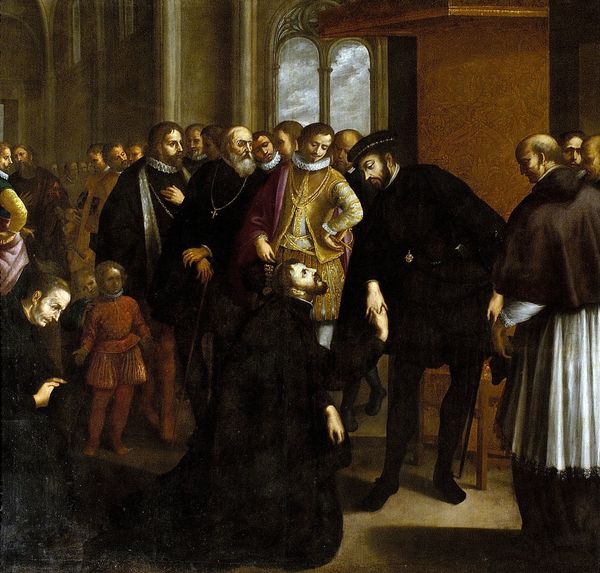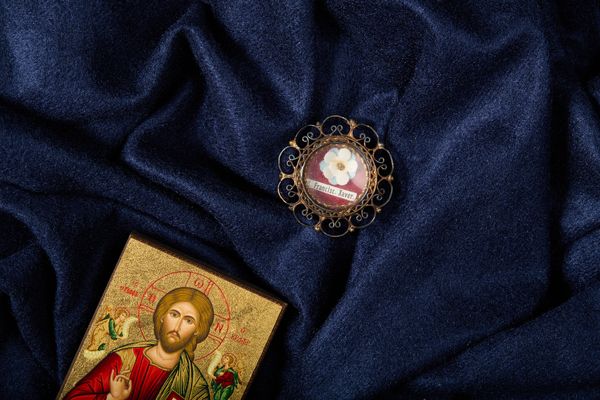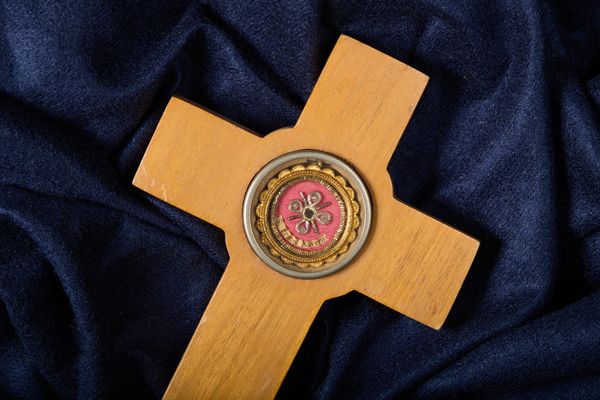Xavier was born in Navarre, Spain, on April 7, 1506. After completing studies in Spain, he traveled to Paris in 1525 at age 19, where he entered the Collège de Sainte-Barbe and befriended Peter Faber and Ignatius Loyola. Ignatius soon won the confidence of the two men, and both Faber and Xavier offered themselves to the formation of the Society of Jesus. Four others (James Lainez, Alfonso Salmerón, Nicholas Bobadilla and Simón Rodrigues) joined them, and the seven professed vows of poverty and chastity in Montmartre on Aug. 15, 1534.
After completing his studies in Paris and teaching there for some time, Xavier left the city with his companions in 1536, traveling to Venice, where he attended to the sick in hospitals. On June 24, 1537, he was ordained with Ignatius. The following year Xavier went to Rome, where he met with Ignatius and his companions during the spring of 1539 to prepare for the definitive foundation of the Society of Jesus in 1540.
Xavier was next appointed by John III, the King of Portugal, to evangelize the people of the East Indies. In April 1541, he sailed to India on a dangerous voyage, landing at Goa in May 1542. He spent the first five months preaching and ministering to the sick. He would go through the streets ringing a bell, inviting children to hear the word of God and explaining the catechism to them.
In October 1542, he journeyed to the pearl fisheries on the southern coast, aiming to restore Christianity. Although introduced years before, Christianity had nearly disappeared there due to a lack of priests. He devoted almost three years to preaching to the people of Western India, converting many. He endured many hardships, including persecution at the hands of some of the kings in the country and some by Portuguese soldiers.
In the spring of 1545, Xavier traveled to Malacca in Malaysia, and in January 1546, to the Molucca Islands, where the Portuguese had some settlements. For a year and a half he preached the Gospel to the inhabitants. By July 1547, he had returned to Malacca, where he met a Japanese man named Anjiro and learned about Japan, inspiring him to spread Christianity there. However, the Society demanded his presence at Goa. During the six years that Xavier had been working elsewhere, other Jesuit missionaries had arrived at Goa, and in 1548, Xavier sent them across India, where he had established missions, to preserve and continue his work. He also established a novitiate and house of studies.
Xavier finally embarked for Japan in June 1549 with Father Cosme de Torres, a Spanish priest; Brother Juan Fernández; and Anjiro, who had been baptized at Goa and given the name Pablo de Santa Fe. They landed in Japan in August, and the entire first year was devoted to learning the Japanese language, with the help of Pablo de Santa Fe. Xavier began preaching and made some converts, but the Japanese monks had him banished from the city. He left Kagoshima in August 1550 to preach elsewhere in central and southern Japan.
After working about two and a half years in the country, he left the mission to Fr. de Torres and Br. Fernández, returning to Goa in 1552. Xavier then turned his thoughts to China and began planning an expedition there.
During his stay in Japan, Xavier had heard much about the Chinese and saw it as a great opportunity to spread the Gospel. He left Goa in April 1552, arriving in autumn at the small island of Shangchuan, off the coast of China. Before reaching the mainland, however, he became ill and died on the island on Dec. 3, 1552.
He completed a staggering amount of missionary work in just 10 years — May 1542 to December 1552 — earning him the titles “Apostle of the Indies” and “Apostle of Japan.” He was canonized with St. Ignatius in 1622 by Pope Gregory XV and named the patron saint of all foreign missions by Pope Pius X.
Credits:
Discriptions of saints lives and biographies have been excerpted, summarized, or compiled from
Franciscan Media,
CatholicSaints.Info,
Catholic Online, and
Wikipedia.


